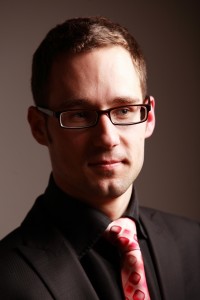Lithuanian Schools of Choral Conducting: Identifications, Interactions and Modernisation
Doctoral student: Egidijus Kaveckas
Supervisors: Prof. Vytautas Miškinis, Prof. Habil. Dr. Gražina Daunoravičienė
Consultants: Prof. Gintaras Rinkevičius, Prof. Povilas Gylys
Department: Choral Conducting
Duration: 2012–2016
Abstract
The conductor’s professionalism, creative touch, aspirations, repertoire strategy and other elements of creative work rely quite heavily on the school of teaching. The Lithuanian choir culture is intertwined with the so-called pedagogical school of choral conducting where the teacher transfers knowledge to the student. These links consolidate the models and aspects of creative orientations, technological attitudes, skills of the trade and often sources of the creative position. In this research project, the definition of the pedagogical school of composers formulated in the works of Algirdas Jonas Ambrazas (1969, 1991) adapted to the school of choir conductors is based on the general school components (programme, teacher, students) recording the specific place, time and tradition.
A structural component model is created representing choral conducting pedagogical school; it helps to refine the Lithuanian choral conducting pedagogical schools’ contours. In order to reach the necessary methodological sustainability and a richer, more specific installation of definitions system, an attempt was made to synthesize conducting and choreography arts. For this purpose, the Movement Analysis theory, an adapted version for conducting by Hungarian choreographer Rudolf J. Laban , was invoked and it was first published in his Kinetographie (1928).
The historiographical, comparative, structural-systemic, descriptive-analytical and other research methods are used to reveal the way in which national or individual pedagogical schools of choral conducting emerge; the principles of their functioning and interaction; how the teaching choirmaster, his creative work, specific manual techniques, interpretational attitudes or ideals continue to contribute to the further development of choir art through their students; modernisation of the Lithuanian school of choral conducting, etc. The conceptual framework of the research topic covers not only the problems of schools of choral conducting and Lithuanian choir music art but also a systematic study of the Lithuanian cultural progress.


